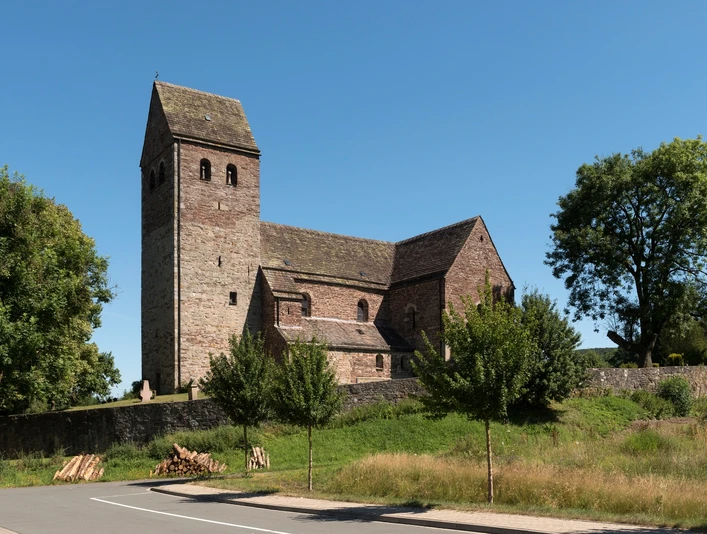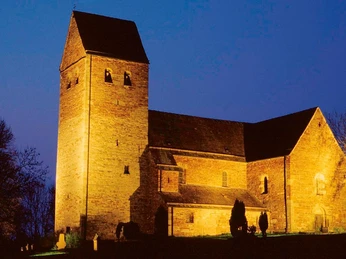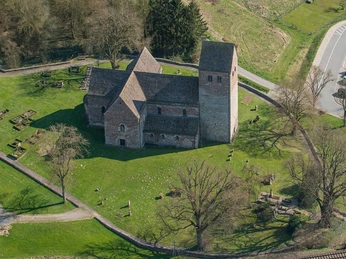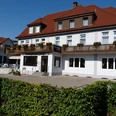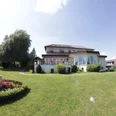- Photos & Map
How would you like to arrive?
- Call
- Description
- Good to know
- Nearby
To the south of today's town of Lügde, St. Kilian's Church stands on a mountain spur in the middle of a formerly fortified cemetery. It dates back to the Saxon Wars of Charlemagne. A (predecessor) church was built here in Carolingian times, a single-nave hall building with a rectangular choir and a later northern extension. The core of this building existed until the 12th century. Around the year 1200, the church was extended and the west tower was raised. The present-day Kilianskirche, a Romanesque cruciform vaulted basilica with a high central nave and low side aisles, an east transept, a square choir and round apses in the choir and on the east walls of the transept, was built during this period. The groined vaults were designed on the model of the Benedictine monastery church at Lippoldsberg on the Weser. Charlemagne celebrated Christmas here in 784 and St. Kilian's Church has since become the town's landmark and is also one of the oldest monuments in Westphalia.
Good to know
Openings
During the winter months, the church is only open on request. From Easter to the end of October, the church is open daily.
Guided tours can be booked through the Lügde Tourist Information Office.
Guided tours can be booked through the Lügde Tourist Information Office.
General information
Parking Available
Bus stop available
Eligibility
Bad Weather Offer
Suitable for any weather
for Groups
for Class
for families
for individual guests
Suitable for the Elderly
Suitable for Pushchair
for Children of the age of 6-10
for Children of the age of 10 upwards
Foreign Language
German, English
Payment methods
Entrance Free
Hygiene and infection safety measures
Distance control
Adequate ventilation
Heed the hygiene instructions
Please observe the applicable distancing and hygiene measures.
Directions & Parking facilities
There is a bus stop at St. Kilian's Church.
More information
Further information is available from the Lügde Tourist Information Office.
Contact person
Author
Organization
License (master data)
Nearby
